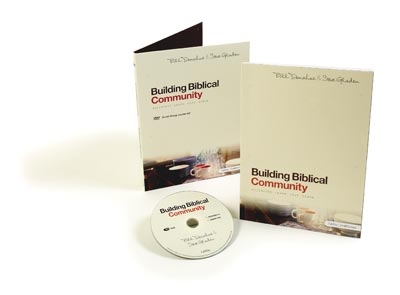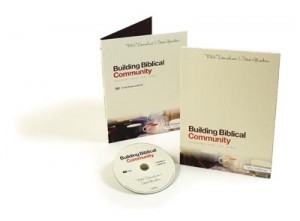Reid Smith (on Twitter and Facebook) is the Director of Adult Ministries for the 20,000 member multi-site Christ Fellowship Church in South Florida and is a regular contributing author to smallgroups.com and rightnowtraining.com through his small group training and resource ministry called 2orMore. This is a series of posts where small group experts share how group life has impacted them personally. The entire series can be found HERE.
___________________________________________
One of my first small group experiences is still fresh in my memory.
In college I remember falling in love with God’s Word through the Bible study I did in community with others. The contributions of others revealed the richness of the Scriptures to me. Each discovery energized the faith of those of us huddled in Jesus’ Name, drawing out further insights and encouraging conversation.

My small group helped me to take risks in sharing my thoughts about spiritual things with others. This too was foundational for what God was preparing me to do in the future. I walked away stronger from the Bible studies in my small group because I knew I was growing closer to God and I wasn’t alone in the process.
I don’t think I realized how much that small group was encouraging me in things that seasoned Christ-followers can far too easily take for granted like praying aloud in the company of others, sharing a revelation that may (or may not) be obvious to others reading the same Bible passage, or responding to a prompting by the Holy Spirit to serve another in God’s household in some unique way.
My pursuit of the divine felt like an adventure with my band of brothers. They gave me permission to add to the conversation and influence. The power of the Word was demonstrated to me in how God inspired each one through our sharing. I loved the fact that even though I read a passage repeatedly, I could never see everything that came out in our conversations.
One other empowering experience through this early small group experience was our road-trip to downtown Washington, D.C., where we fed the homeless and talked with people on the sidewalks of Georgetown about Christ. It was one of the most terrifying and uplifting experiences I had as a newer believer. I remember my hesitancy, but knowing that what we were doing was right.
It was the prayer and encouragements of those in my small group that help me and everyone else to step out of our comfort zones. As a result, I encountered Jesus through our serving (Matthew 25:40). I saw God break-through to a seeking heart that received the Gospel despite the mocking of his friends. Community brought me to places where I saw God at work. Places I would never have visited if it weren’t for the fellowship of others in Christ.
Small groups may not always seem glorious from the outside looking in, but somehow God used that community of young believers to turn me inside-out for His glory. I fell in love with small groups early on because they helped me fall in love with God, His Word, and the communion of saints that enabled me to be Jesus to those who were in search of Him.
Have you ever been a part of a community that stretched and shook you?
Are you willing to do whatever it takes to have that healthy community?











